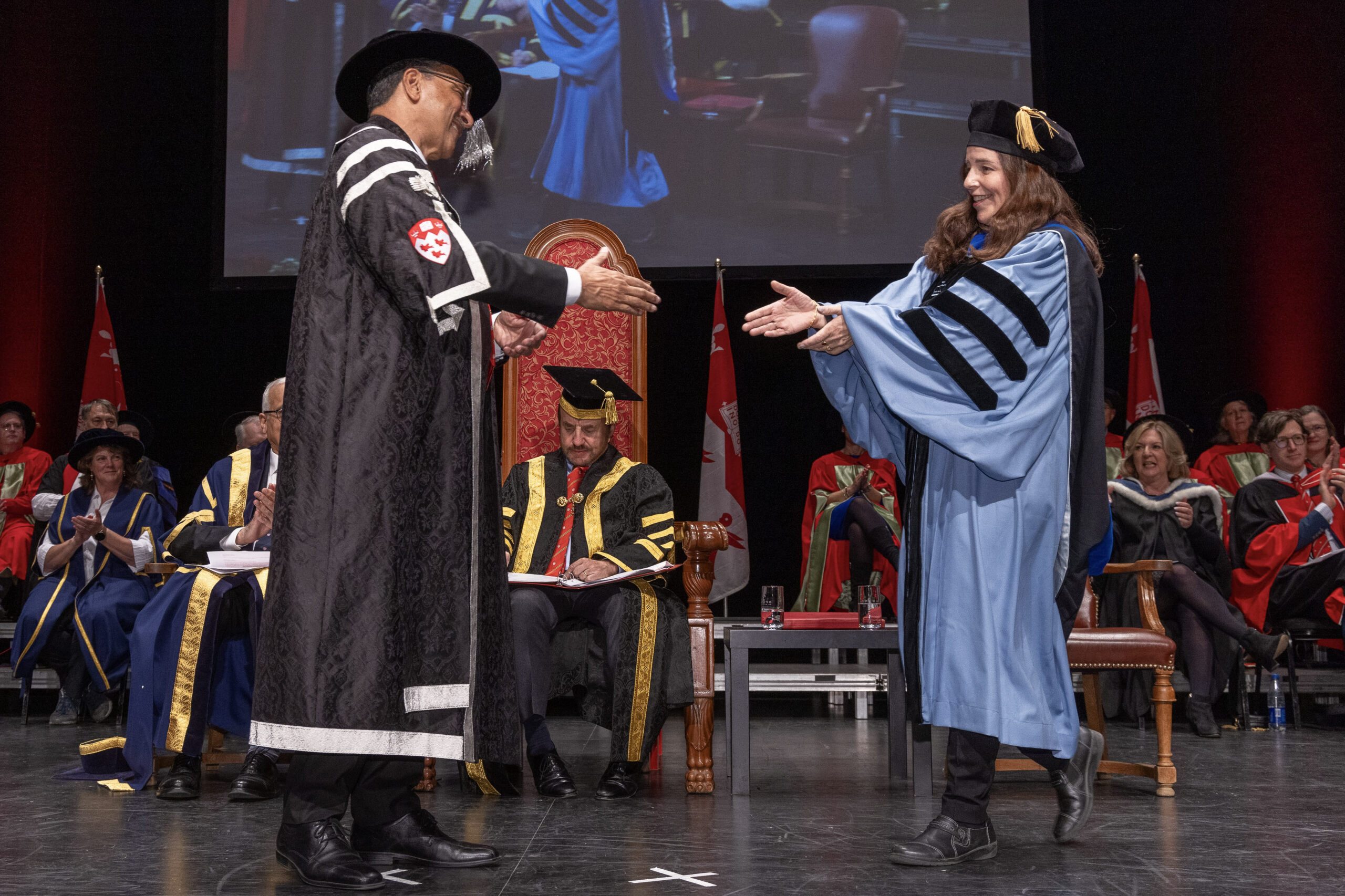
It’s not hard to figure out why Andrea Farran has received several teaching awards in her career.
“Students are absolutely the best part of my job,” she says. In fact, that’s the first thing she says, when asked for her thoughts on being selected for a Principal’s Prize for Excellence in Teaching in the Associate Professor category.
“I really love teaching, and working with young people,” says Farran, Associate Professor of South Asian Religions in McGill’s School of Religious Studies. She also serves as Associate Member in the Department of History and Classical Studies, as well as Academic Program Director for the interdisciplinary Minor in South Asian Studies.
Her dedication to the student learning experience is evident in the over-the-top course evaluations she consistently receives. No surprise that she’s also one of the recipients of the 2023 Arts Undergraduate Society’s Most Outstanding Professor Award.
Farran has taught at McGill for the past decade but began her career 20 years ago in India and then in Singapore, where she won another teaching award. “To have my work now recognized at the university-wide level at McGill is deeply affirming,” says Farran. “It’s a wonderful feeling.”
Full circle, 30 years later
Farran received the Principal’s Prize on November 20, during the Fall 2023 Convocation ceremonies. She notes there’s a meaningful connection: “I graduated exactly 30 years ago at the November convocation at Salle Wilfred Pelletier!”
As an undergraduate, Farran arrived from Ontario to study at McGill, where her father had studied in the 1950s. “Montreal opened up a whole new world for me,” she recalls. She was soon drawn to McGill’s offerings in South Asian Studies, particularly Sanskrit, one of India’s classical languages. “It was the most interesting and challenging thing I had ever done. I wanted to know more.”
Farran continued her studies in India as a Commonwealth Scholar, completing an Advanced Diploma (Hindi) from Banaras Hindu University (Varanasi). She then completed an MA in South Asian Religions from the University of Hawai’i at Manoa and a PhD from Columbia University, and taught Hindi at Antioch College (Bodhgaya) and the School for International Training (Jaipur).
She served as Assistant Professor at the National University of Singapore from 2008 until 2013, when she returned to Montreal to join McGill. Her research languages are Hindi-Urdu and Sanskrit, and she is co-editor of Religious Journeys in India: Pilgrims, Tourists, and Travelers, published by SUNY Press.
Sharing the Canadian South Asian experience
The focus of much of Farran’s teaching at McGill is on the Canadian South Asian experience. “I hope to make students much more aware of the vitality of this aspect of our history,” she says. “South Asian Canadians have been central to our national story for 125 years.”
Farran estimates that between one-third to one-half of her students will have some South Asian heritage. Her goal, though, is to create “a level playing field.” She welcomes everyone’s contributions, including those with no prior background on the topic, who often “ask questions that make us think in completely new ways.”
She provides copious reading material but is careful to flag what is required versus recommended, or just FYI. In all her classes, from large lectures to small seminars, she encourages students to ask questions, share their insights, and discuss class content with their peers.
“I try to create opportunities for students to talk to one other, ask each other questions about the assignments — and make friends.”
“I learn to be a better teacher, thanks to my students”
Many of her courses involve an experiential component, such as a visit to a local gurdwara, or a field trip to St. Joseph’s Oratory, which even local students haven’t always visited. She offers a “scaffolded” (multi-step) assignment process, in which she might provide students with guidance on sources in their ungraded outlines, to point them in the right direction.
Above all, Farran wants her students “to feel more confident about their writing. That will really serve them well in the future.”
Praised for the community spirit she creates in her courses, Farran looks forward to coming to class and learning what her students think of the readings or the film she’s assigned that week. She also looks forward to hearing what they’ve been talking about with each other, outside of class.
“Pedagogically, my philosophy is based on collaborative learning. Every class, I’m excited to be there, because I learn to be a better teacher, thanks to my students.”

working within the School of Religious Studies and seeking an inter-faith perspective, Prof Ferran was an asset to my Masters work. This award is well deserved